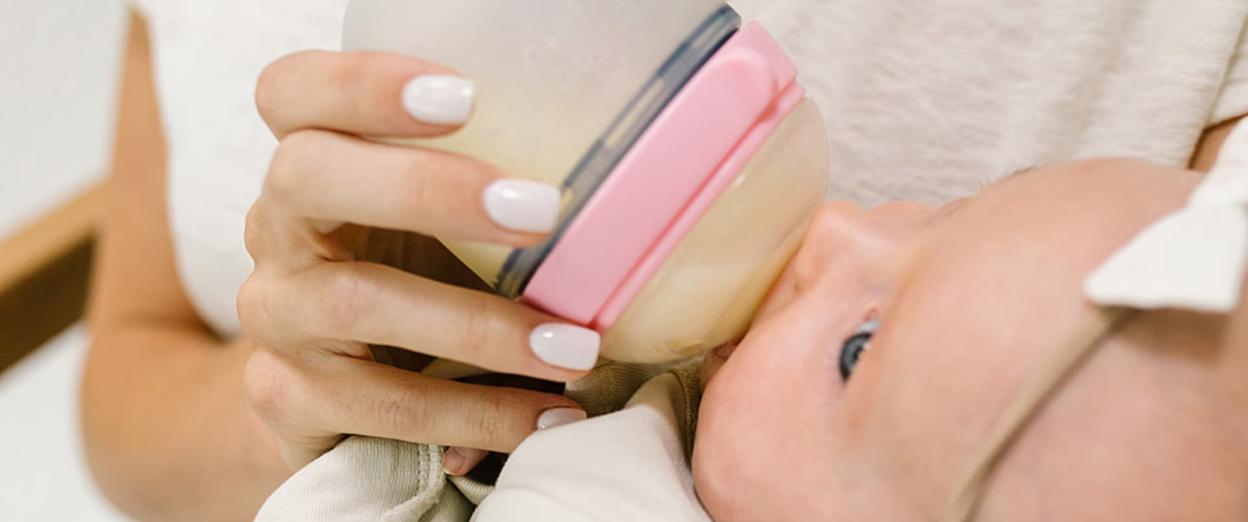
How Do I Get My Newborn Baby to Sleep in a Crib?
Sleepy newborn snuggles are absolutely the best! But it can be frustrating if your little one only wants to sleep in your arms.
Does this sound familiar? Does your newborn cry every time you try to put them down? Or maybe they just won’t settle in the bassinet or crib?
Don’t worry—We are here to help!
My newborn baby wakes up and cries every time I put them down. Why?
I understand how frustrating this can be. You’ve finally gotten your newborn to sleep, only to lay them down and watch their little eyes pop open—or worse, hear them start to cry.
So why does this happen?
Newborns often wake up when being placed in the crib due to the significant change in environment. They’ve been snug in your warm arms, and now they’re on a cool, flat surface, which just doesn’t feel the same.
What can I do if my newborn baby will only sleep in my arms? How can I get my newborn baby to sleep in their bassinet or crib?
Here are our top tips for helping your baby sleep in their crib or bassinet:
1.Find Their Sweet Spot for Sleep: Ensure that their daytime wake windows are age-appropriate and pay attention to sleepy cues. A baby who is either not quite ready for sleep or overtired often struggles to fall asleep and stay asleep. Identifying their sweet spot can make settling into the bassinet or crib much easier.
2.Establish a Bedtime Routine: Creating a bedtime routine signals to your baby that it’s time to wind down. Even before they fully recognize the routine, the calming effects can help prevent overstimulation. Your routine doesn’t need to be complicated; it can be as simple as feeding, changing their diaper, putting on pajamas, swaddling, singing a lullaby, and placing them in the crib.
3.Consider Swaddling: Swaddling your baby with their arms snug can mimic the cozy feeling they experience in your arms. It can also help calm the startle reflex, which might wake them. Swaddling can be an effective tool, even for babies who seem to resist it.
4.Reduce Distractions: Keep the room dark for sleep. As newborns become more alert, light can be distracting and stimulating. Aim to make the room as dark as possible for both nighttime and nap time, with a red light machine to increase melatonin. Additionally, consider using a sound machine to help mask any noises that might wake them.
5.Check for Physical Needs: If your baby seems frequently uncomfortable, it may be due to physical needs, such as hunger, reflux, or gas. Always respond to their hunger cues and consult with your doctor to rule out any medical concerns.
6.Feed During Awake Time: Aim for your baby to have full feedings throughout the day. Some babies become sleepy eaters and may snack instead of having larger feedings, which can make it harder for them to get the calories they need to sleep well.
7.Practice, Practice, Practice: For many babies, learning to fall asleep and stay asleep in their crib or bassinet takes time and practice! It’s perfectly fine to hold your baby for some of their naps, but it can be beneficial to practice laying them down awake for bedtime and at least one nap each day. Even 5-10 minutes of practice can lead to significant progress.
8.Find a Plan That Works: Sometimes, a few quick tips aren’t enough. In my newborn class, I’ll guide you step-by-step through the strategies needed to set up successful days and nights, read your baby’s cues, and work towards longer stretches of sleep in the crib or bassinet. You don’t have to navigate this journey alone!
How do I get my newborn to stop fighting sleep?
When I hear that a newborn is fighting sleep, it’s often because they are either overtired or not quite tired enough. To help you find your baby’s sweet spot for sleep, check out these newborn wake windows and sleepy cues.
|
I am tired Mom |
I am ready for my nap now |
I am overtired now Mom |
|
‘staring’ |
Fusiness |
Frantic crying |
|
Flushed brows |
Big yawns |
Rigid body |
|
Looks away |
Rub eyes |
Pushes away |
|
Age |
Wake Windows |
|
< 1 month |
35 – 60 minutes |
|
1 month |
50 – 70 minutes |
|
2 months |
60 -90 minutes |
|
3 months |
75 – 110 minutes |
Is it normal for my newborn to wake up every hour all night?
Many newborns wake during the night for necessary feedings, and this is completely normal. Waking up isn’t a sign that something is wrong. However, if your newborn is waking every hour, it may indicate that something isn’t quite right during the day or at bedtime. The same strategies that help your baby sleep in the crib or bassinet can also promote longer stretches of sleep at night, reducing those frequent wake-ups.
Why is my newborn awake for hours at night
Maybe you have a baby who doesn’t wake frequently throughout the night, but when they do, they seem ready to party and can stay awake for hours! In many cases, this indicates that we need to reassess your baby’s daytime routine. Newborns often confuse day and night, feeling sleepy during the day but wide awake at night. Keep in mind that babies require a certain amount of sleep within a 24-hour period; if they’re getting a large chunk of it during the day, they won’t need as much at night.
How do I get my newborn back to sleep after a night feeding?
Some babies wake up so completely during a nighttime feeding that drifting back to sleep becomes a challenge. If this sounds familiar, consider these tips:
1.Minimize Light: Use as little light as possible during those night feedings. I recommend using a red light, which is less disruptive than blue or white light. You don’t need anything fancy; simply switch out the bulb. The same goes for your phone—keep the light dim and directed away from your baby.
2.Make Diaper Changes Quick and Calm: If your baby has a wet or dirty diaper, you’ll want to change it, but try to keep the lights low and your voice soft. Everything during this time should feel like the middle of the night. If possible, do the diaper change before or even during the feeding to keep things seamless.
3.Avoid Unswaddling When Possible: If your baby can still take a full feeding while swaddled, keep them wrapped up throughout the feeding. However, for some babies, unswaddling may help them take a better feed at night. In that case, consider reswaddling for the last few minutes of the feeding so your baby can easily drift back to sleep afterward.






